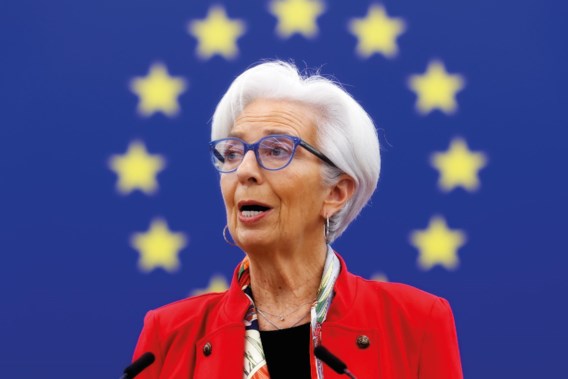Inflation has fallen below 2 percent in three eurozone member states. That is the level that the ECB has in mind.
These are Spain, Luxembourg and Belgium. Inflation according to the harmonized European measurement method in our country was 1.6 percent in June, the same as in Spain. In Luxembourg the figure was 1.0 percent. Rapidly falling energy prices are dragging down the Belgian figure. According to the non-harmonised measurement method, the Belgian inflation rate was 4.15 percent.
Life in the eurozone as a whole was 5.5 percent more expensive in June than twelve months previously. The analyst expectation was 5.6 percent. The figure was lower than in May, when it stood at 6.1 percent. Core inflation (ie excluding energy, food, alcohol and tobacco) was slightly lower at 5.4 percent. For all expenditure categories, except services, the figure was lower than the previous month. Inflation is therefore falling sharply, but still too high. That is why the ECB will raise interest rates further in July and possibly also in September.
Germany was the only country where inflation rose, but that was because a very advantageous fare for public transport was temporarily in force in that country last year. That skews the comparison with last year. Only in one country, Slovakia, inflation is still written in double digits. It is 11.3 percent. Inflation figures in the Eurozone now therefore show an extreme variation between the different countries. The National Bank expects that the figure in Belgium may even fall temporarily below zero in the coming months. This has to do with the inflation peak that occurred in the autumn last year.
Analysts assume that the figures for the ECB are no reason to deviate from the set path. Only if core inflation also falls clearly can an interest rate pause be considered. ‘The ECB is committed to not proclaiming victory too soon’, Nomura’s analysts conclude. This bank thinks that interest rates will rise in July, but not in September.
According to ING, the main concern is rising inflation in the services sector, fueled by rising wages. These weigh more heavily in the prices of services provided, such as catering or tourism, than in the prices of industrial goods. Wage increases are supported by the labor market, which remains quite tense. The unemployment rate is at a record low.
2023-07-01 03:00:00
#ECB #achieved #target #countries

